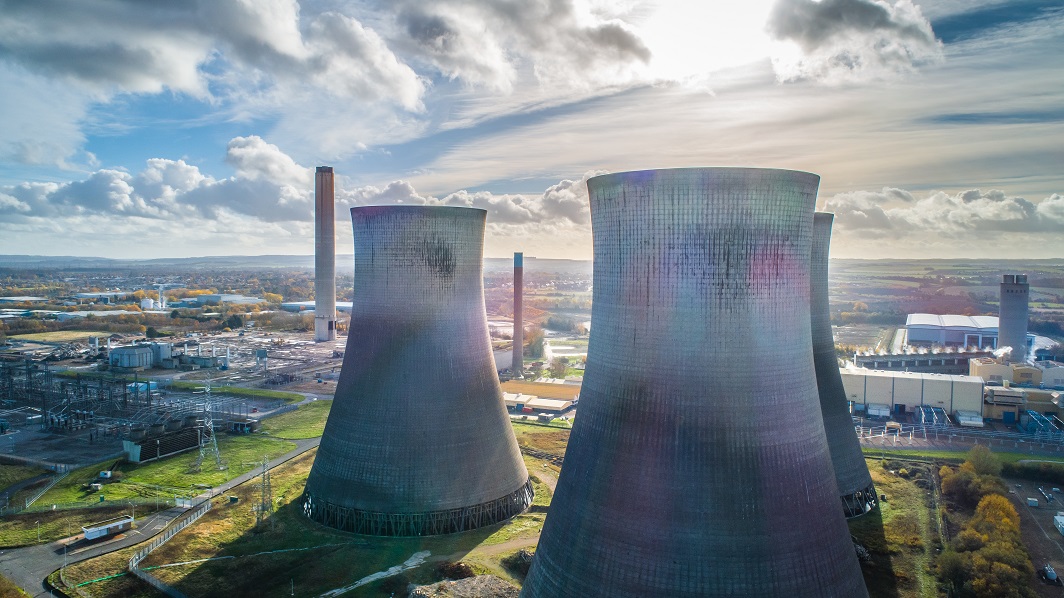.jpg)
5 Reasons SC Clearance Could Be Declined (and How to Avoid It)
Security Check (SC) Clearance is a common requirement for engineering roles in the UK nuclear sector. It allows access to sensitive government or project information and is often essential for anyone applying for positions such as nuclear design engineer, structural engineer or project engineer, roles we regularly recruit for at Carrington West.
So why could security clearance be declined in the UK?
This article outlines five common reasons why your nuclear security clearance could be declined and how applicants can reduce the risk of this happening. As nuclear vetting is highly regulated, we recommend consulting official sources such as UK Security Vetting (UKSV), GOV.UK, or your sponsoring employer for full, up-to-date guidance.
1. Incomplete or inaccurate application
Of our five automatic disqualifiers for security clearance, one of the most frequent would be errors or omissions in the application. Missing details about employment, overseas travel, or personal references will delay the process or raise questions about your reliability. It's important to be thorough and accurate when completing the security questionnaire. Double-check dates, spellings, and ensure you include full address and employment history. If anything changes after submission, notify your sponsor immediately.
2. Criminal convictions or unresolved legal matters
A history of serious offences, especially those involving dishonesty or violence, can affect your eligibility. Even lesser offences may be a problem if they are undeclared. Honesty is essential during the vetting process for security clearance. If you have a criminal record, always disclose it fully. In some cases, evidence of rehabilitation or time passed since an incident can be taken into account.
3. Financial instability or unmanaged debt
SC clearance vetting includes a financial background check, which is designed to identify potential vulnerabilities, such as the risk of coercion. Individuals with large amounts of unmanaged debt or a history of financial mismanagement may be flagged. Keeping your finances in order and being open about any financial issues is the best approach. Showing you are actively managing debt through payment plans or financial advice can help demonstrate responsibility.
4. Insufficient UK residency or unclear foreign ties
To qualify for SC clearance, you generally need to have lived in the UK for at least five out of the past ten years. Extended time abroad or unexplained foreign connections can be a barrier. If you have lived or worked overseas, keep records of addresses, employers and reasons for travel. Having links to individuals or organisations in countries considered a security concern can also impact clearance, so it’s important to be transparent and cooperative when explaining such connections.
5. Withholding information or uncooperative behaviour
Perhaps the most avoidable reason for a clearance being declined is a lack of openness. Incomplete answers, vague explanations, or a reluctance to provide information can be viewed as red flags. Even small omissions may be interpreted as attempts to conceal something. The most effective way to navigate vetting is to be honest, consistent and responsive to requests for clarification.
SC clearance matters because it allows employers in the nuclear sector to ensure staff can access sensitive information that they need to do their jobs. Holding or being eligible for clearance can open doors to high-level roles on major infrastructure and energy projects. You’ll find in the nuclear sector that SC clearance is essential from day one, including for anyone who has extensive work experience in other sectors.
If you're considering applying for a role that requires SC clearance and are unsure of your eligibility, we advise consulting GOV.UK’s National Security Vetting guidance. While we are not clearance experts, we’re always happy to support candidates through the early stages of the process and signpost you to the right resources.
For a confidential discussion about our current nuclear vacancies or to learn more about roles requiring clearance, contact our team today.
To learn more about security clearance in the nuclear sector, read this blog: Navigating Security Clearances to Work as a Nuclear Engineer
